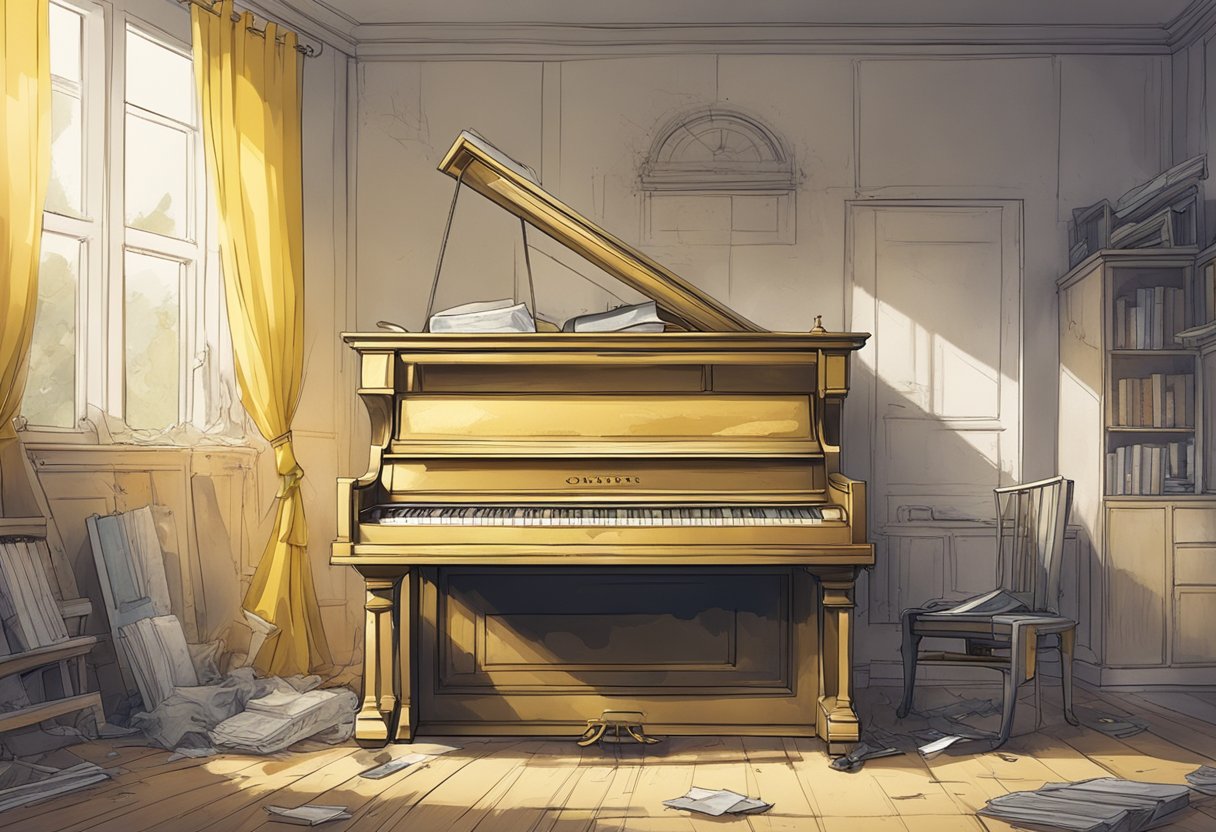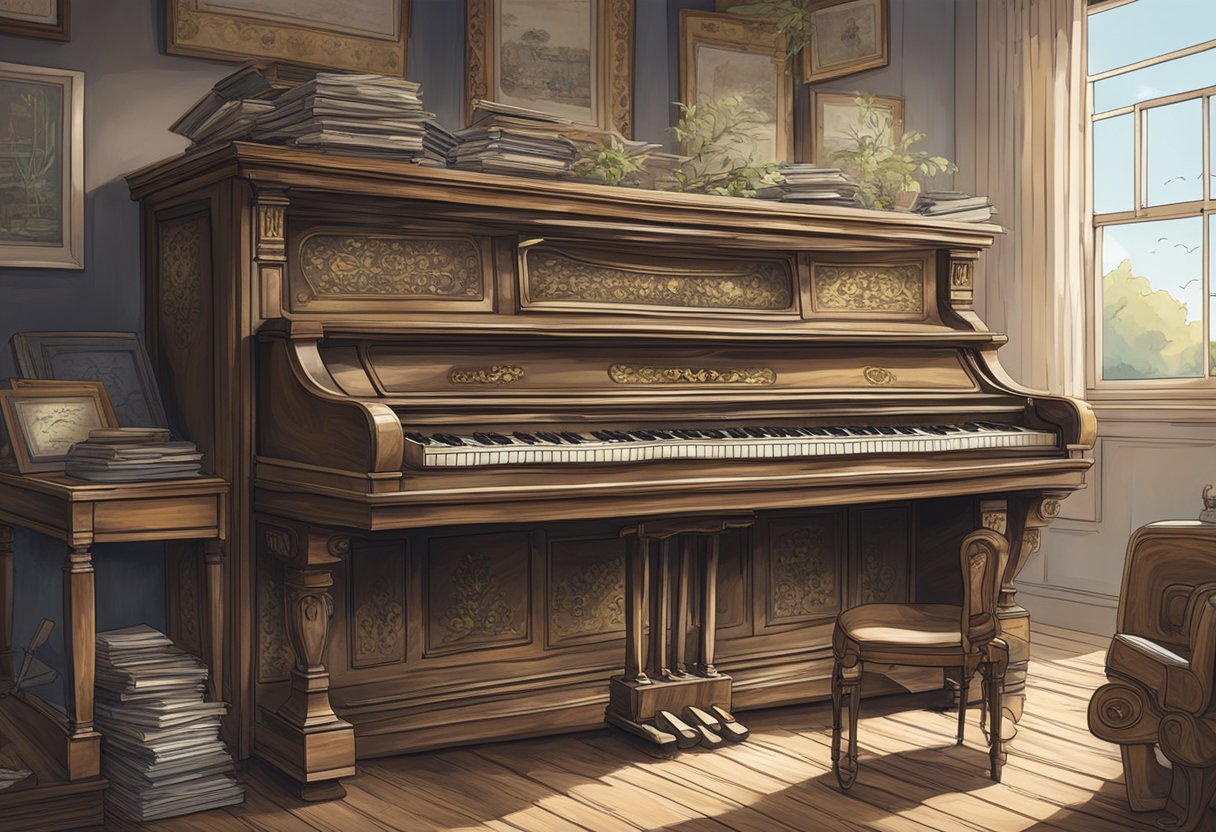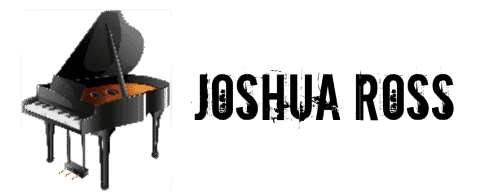As an Amazon Associate I earn from qualifying purchases.
Pianos, with their resonant harmonies and stately presence, can become like members of the family. But when it’s time for them to leave our homes, their departure can be surprisingly challenging.
The cost of moving and maintaining a piano only adds to this complexity. Moving expenses can start at a couple of hundred dollars and increase based on various factors including stairs, distance, and instrument size.
Want to Learn Piano?Click Here

Furthermore, if the piano requires tuning or repairs, the costs can escalate, thus contributing to the difficulty of finding it a new home.
Whether facing the physical hurdle of transporting these majestic instruments or wrestling with the emotional tug of letting go, the journey of rehoming a piano is often more intricate than one would expect.
In my experience, each piano has its own story, and when it’s time for it to find a new space to fill with music, I’ve found that creativity and patience are key. There are avenues like donating to a community center or selling to a fellow music lover, but each solution requires thought and effort, turning the process into something more arduous than simply getting rid of an old piece of furniture.
Challenges in Piano Disposal

Disposing of a piano can be a surprisingly complex task, with several factors making the process especially challenging. I’ve seen firsthand the difficulties that can arise when it’s time for a piano to find a new home or be removed altogether.
Size and Weight
Pianos are substantial instruments, with even the smallest upright models weighing in at several hundred pounds. Grand pianos can be especially burdensome, requiring significant manpower or specialized equipment to move.
The sheer size and weight of a piano mean that specialized professional piano movers are often necessary to prevent injury and damage to the piano and property.
Cost of Removal
The cost to remove a piano can be quite a sum. A simple move across town might be manageable, but total disposal can rack up fees. Typically, this includes the service charges for these professional movers and may vary based on the piano’s size and the difficulty of the move.
It should be noted that the piano removal cost is often steeper for grand pianos due to their larger dimensions and more complex disassembly requirements.
Logistical Difficulties
Beyond just getting the piano out the door, the logistics of where it will go next pose another set of challenges. Some pianos may be donated or sold, but if a piano is beyond repair, options may be limited. Services like 1-800-GOT-JUNK can remove the piano for a fee, but it’s still important to consider the environmental impact and strive for a responsible disposal method.
You’ll need to coordinate with local disposal services that accept large, bulky items and potentially hazardous materials found in older pianos like lead and asbestos.
Understanding the Market for Pianos
Navigating the piano market can be tricky. Whether you’re considering selling your piano or in the market to acquire one, it’s important to grasp the complexity of supply, demand, and the shifting cultural trends that impact this unique marketplace.
Supply Versus Demand
In the realm of pianos, supply often outstrips demand. You might find that selling a piano can be challenging simply because there’s a surplus of instruments available.
Often, people are offering their old pianos for free, just to free up space in their homes. This is particularly true as downsizing boomers look to scale back their living situations. The market is flooded, which means buyers have plenty of choices and little reason to pay premium prices.
Shifts in Musical Interests
Musical interests have shifted significantly over time, particularly among millennials. Where pianos were once the centerpiece of home entertainment, modern interests lean towards more portable and versatile instruments.
When you try to sell a piano, you’re often encountering a market that’s less interested in traditional pianos and more intrigued by different musical avenues.
Impact of Digital Alternatives
The prevalence of electric keyboards and digital alternatives has transformed the market. When you’re exploring options, whether buying or selling, it’s easy to see that these alternatives are attractive for their low maintenance, lower cost, and appealing features such as headphone jacks for private practice.
They cater to a population interested in convenience and versatility, which traditional pianos, despite their rich tones and aesthetic appeal, struggle to offer.
Selling Your Unwanted Piano
When it’s time to part with your piano, pinpointing its value and choosing the right online marketplace are crucial first steps to a successful sale.
Determining the Piano’s Value
To get a fair price for your piano, begin by assessing its condition. Check for any damages and ensure all keys are functional. A piano’s serial number can often indicate its age and origin, contributing to its overall worth. If possible, consult a piano technician; they can provide valuable insights into your instrument’s value.
Online Marketplaces
To sell your piano online, popular platforms include eBay, Craigslist, and Facebook Marketplace. Each offers a unique audience:
Remember, when listing, include high-quality photos, an honest description, and, if known, the piano’s history.
Donation Options for Pianos
When you’re ready to part with your piano, charitable donations can be a wonderful way to give your instrument a new life. Donating a piano can benefit a variety of organizations and initiatives, ensuring that your cherished instrument continues to bring joy and music to others.
Charitable Organizations
The Beethoven Foundation accepts piano donations and ensures they make their way to aspiring musicians. Your contribution could become a critical tool for a budding artist. It’s like passing on a torch—a legacy of music.
Pianos for Education offers a similar program, extending the life of pianos by placing them in educational settings where they can be an invaluable resource for students learning to play.
Community and Arts Initiatives
Local community groups including Levine Music or the Capitol Hill Arts Workshop may welcome a donated piano. These organizations often rely on contributions to enrich their programs. By donating your piano, you give community members the opportunity to explore and grow their musical talents.
Remember that when considering donating a piano, details like instrument condition and tuning status are important. Whether it’s a charity shop that benefits a good cause or a piano adoption program, your contribution can make a significant impact.
Creative Ways to Repurpose Pianos
When you no longer have use for your old piano, think twice before deciding to toss it out. There are numerous inventive strategies to breathe new life into a piano beyond its musical duties.
DIY Projects and Upcycling
For the hands-on enthusiast, DIY projects and upcycling can turn your old piano into a distinctive piece of home decor or a functional fixture.
For instance, crafting a piano bar by hollowing out the instrument and installing shelves can create a conversation starter and a functional area for entertaining guests. You can also transform the piano’s keys or ornate wood into wall-mounted art pieces—each one telling a story of its symphonic past.
Public Installations
A piano that’s past its prime can find a new purpose as part of public installations. Imagine an interactive art piece in a community park or a vintage piano repurposed into a charming public bookshelf.
These installations not only preserve the instrument’s beauty but can also become a magnetic point for community interaction and appreciation of the arts.
Home Decor Utilization
In the realm of home decor, a piano doesn’t need to disappear from your living space when it’s no longer playable. With a touch of creativity, the elegant structure of a piano can transform into a unique headboard for your bed, integrating the love of music into your place of rest.
Alternatively, if you cherish the days of composing music or practicing scales, you might appreciate repurposing sections of the piano into picture frames or shelves, keeping those musical memories in sight.
As you consider the options, remember that each piano carries its own history, making these repurposing endeavors not just a nod to sustainability but also a way to honor the instrument’s cultural significance.
Whether you’re a seasoned musician or someone who admires the piano’s aesthetic, your old piano can enjoy a grand encore in many forms.
Getting Rid of a Piano Responsibly
When the time comes to part ways with your piano, it’s essential to approach its disposal with responsibility in mind. Whether the piano has become a cumbersome piece of furniture or no longer holds its melodic charm, making an informed and environmentally conscious decision can help alleviate the challenge significantly.
Eco-Friendly Disposal
Disposing of a piano responsibly means considering the environment. Pianos are large objects composed of wood, metal, and other materials that can be harmful if left in a landfill. Begin by reaching out to local schools, churches, or community centers to see if they are in need of a piano.
If your piano is beyond repair, considering a more creative approach might be appropriate. For instance, upcycling parts of the piano into furniture or art could be a charming addition to your home or a delightful gift.
The wood can often be repurposed and the strings can be recycled as scrap metal, keep the beauty of your piano alive in different forms.
Practical Tips for Liquidating Pianos
When it’s time to part ways with a piano, whether due to downsizing or simply making space, knowing how to effectively liquidate this large instrument is key. Here are specific strategies to consider.
Auctions and Estate Sales
Auctions and estate sales can be excellent venues for selling a piano, especially if it’s a high-quality, well-maintained instrument. Listing your piano in an auction can attract serious buyers looking for unique finds, often willing to pay a fair price for a well-valued piece.
For estate sales, make sure you partner with a reputable company. They understand the true value of pianos and can present it attractively to potential buyers. If your piano is an antique or a prized brand, estate sales can tap into a network of collectors who might be interested.
Thrift Stores and Consignment
Thrift stores and consignment shops can also be a viable option for piano disposal, especially if you’re in a hurry. These routes may not fetch the same price as an auction, but they offer convenience. Donating your piano to a thrift store not only ensures it goes to someone who may give it a second life but may also qualify you for a tax deduction.
Consignment shops are a middle ground, where your piano can be showcased for potential buyers, but keep in mind that these shops will take a percentage of the sale price.
Hello & thanks for stopping by! I’m a professional concert pianist and piano instructor. In the United States, I’ve given successful performances in several places including New York, Florida, Connecticut, & New Jersey, I have also performed internationally in Italy and made my Carnegie Hall debut in 2014. I enjoy blogging about the piano, the art of performance, general music, current events and the latest in music production.
